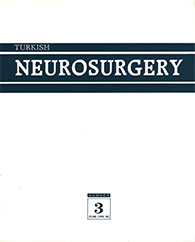We concluded that; 1) Endothelium-dependent vasodilation with ACh is present in pial arterioles. 2) 10 min global cerebral ischaemia temporarily reverses the endothelium- dependent pial arteriolar responses to ACh. 3) Since the production of free oxygen radicals following 10 min global ischaemia has been demonstrated, inhibition of endothelium- dependent vasodilation of the pial arterioles during the reperfusion period, depends on inactivation of the endothelium-dependent relaxing factors) (EDRFs) by free oxygen radicals. 4) Since the vasodilatory responses of the pial arterioles recovered in the late reperfusion period we concluded that EDRF(s) were still produced and the endothelial cells were intact or minimally damaged. These findings suggest that elimination of endothelium-dependent vasodilation is the result of relatively minor injury rather than complete destruction of the pial arteriolar endothelial cells. 5) Vasoconstriction of the cerebral arterioles after ACh application during the early reperfusion period was the unmasked vasoconstrictory effect of ACh on the vascular smooth muscle, because of EDRF inactivation by free oxygen radicals.
Keywords : Cerebral ischaemia. endothelium-dependent relaxing factors (EDRFs), acetylcholine, vasodilation, free oxygen radicals




